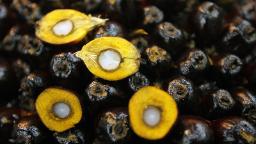
The restrictions, which went into effect on Wednesday, take aim at all palm oil produced by FGV Holdings Berhad, a Malaysian-based agricultural company, and come after a yearlong CBP investigation into labor abuses.
CBP uncovered indicators of forced labor including physical and sexual violence, debt bondage, retention of identification documents and withholding of wages, said Brenda Smith, executive assistant commissioner of CBP’s Office of Trade.
The agency also found potential child labor being used in FGV Holdings’ palm oil manufacturing process.
“The use of forced labor in supply chains is not acceptable to the United States,” Smith said. “It is a requirement that the US importing community ensure that their supply chains are clean.”
CBP issued a “Withhold Release Order” against palm oil products from FGV Holdings. This allows the agency to detain these products at US ports of entry and forces importers to either export the products or prove that the palm oil was produced without forced labor. Sometimes shipments already headed to the US will be rerouted.
“There certainly is a lot of work that remains to be done,” Smith said about the coming fiscal year.
Palm oil is a “widespread commodity” used in many products, from food to cosmetics to biofuel, Smith said. It has a variety of product labels, all of which are covered under this order. There have been $147 billion in US imports of palm oil products since August 2018, according to CBP. The new restrictions on FGV Holdings will not have a significant impact on total US imports of palm oil and palm oil products, the agency found.
CBP believes “a number” of US companies import palm oil products from FGV Holdings, Smith said, declining to comment on specifics.
CBP uses a variety of open source information to assist its investigation, such as news reports and nongovernmental reporting. Smith said this investigation had been going on for around a year.